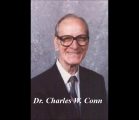God’s Women and God’s Peasants: The Song of Deborah as Heroic Poetry for Marginalized Peoples
Here’s the abstract for the paper I am presenting at Florida State University this Saturday: “God’s Women and God’s Peasants: The Song of Deborah as Heroic Poetry for Marginalized Peoples”
This paper will contrast the fourth and fifth chapters of the Book of Judges. By showing the differences between the two accounts of the events that lead to Israel’s victory over Jabin and the Canaanites, I will show how the older poetic version of Judges 5 highlights the actions of women and peasants, while the prose account of chapter 4 downplays the role of these heroes. There are considerable reasons to read the Song of Deborah as a piece heroic poetry. As a piece written in the artistic medium of poetry, the Song of Deborah is often viewed as peripheral to the more historical sounding prose account of Judges 4. However, I will establish that Judges 4 belongs to the work of the Deuteronomist(s), whereas the Song of Deborah predates the work of the Deuteronomist(s). Thus, the Song of Deborah functions outside the parameters of the Deuteronomist(s)’ agenda, to provide a historical account that is closer to the history of the people than the prose account of Judges 4. Contemporary evangelicalism tends to resist any appeal to the arts, particularly secular music, movies, and books. Yet, the Song of Deborah provides clear biblical evidence for poetry that provides historic narrative that puts God’s work among marginalized peoples on display. In conclusion, I will draw lines that might help us envision the Song of Deborah as a piece of resistance literature that returns history to marginalized peoples and challenges the narratives produced by dominant culture.
2. Publish your FaceBook posts in the group as usual
3. We will broadcasted them automatically around the world

